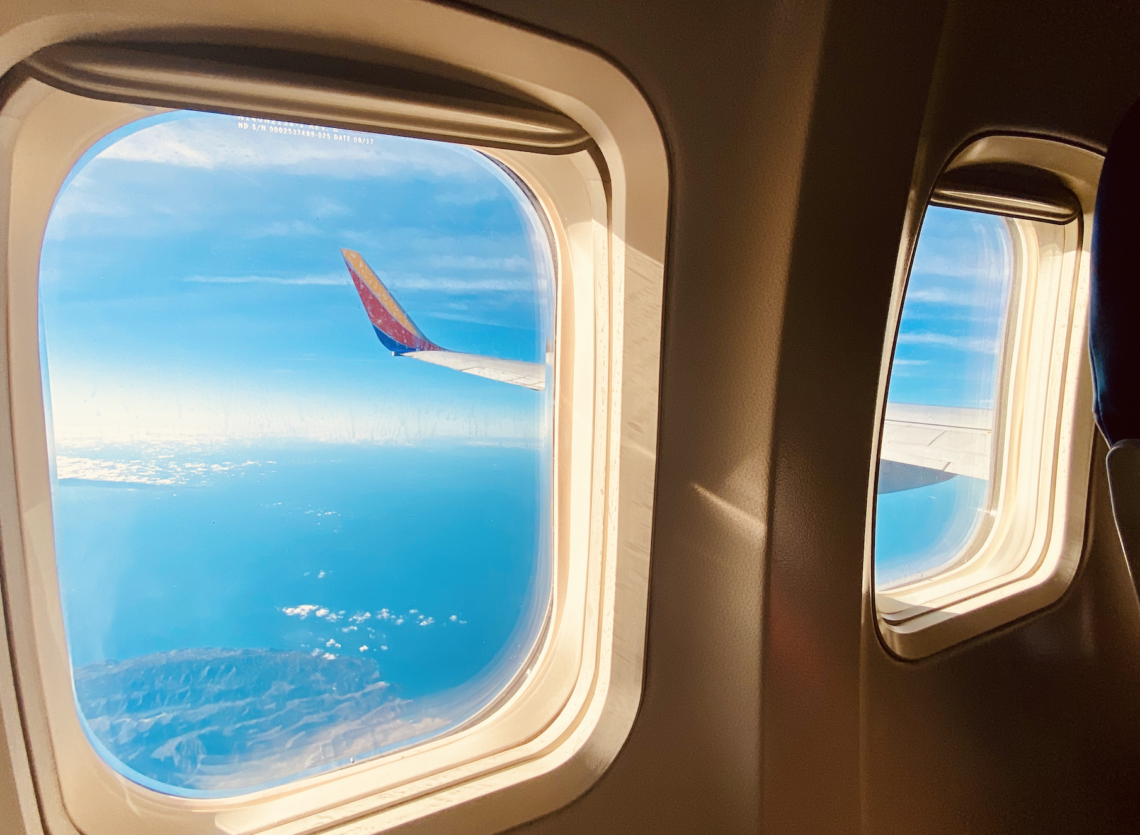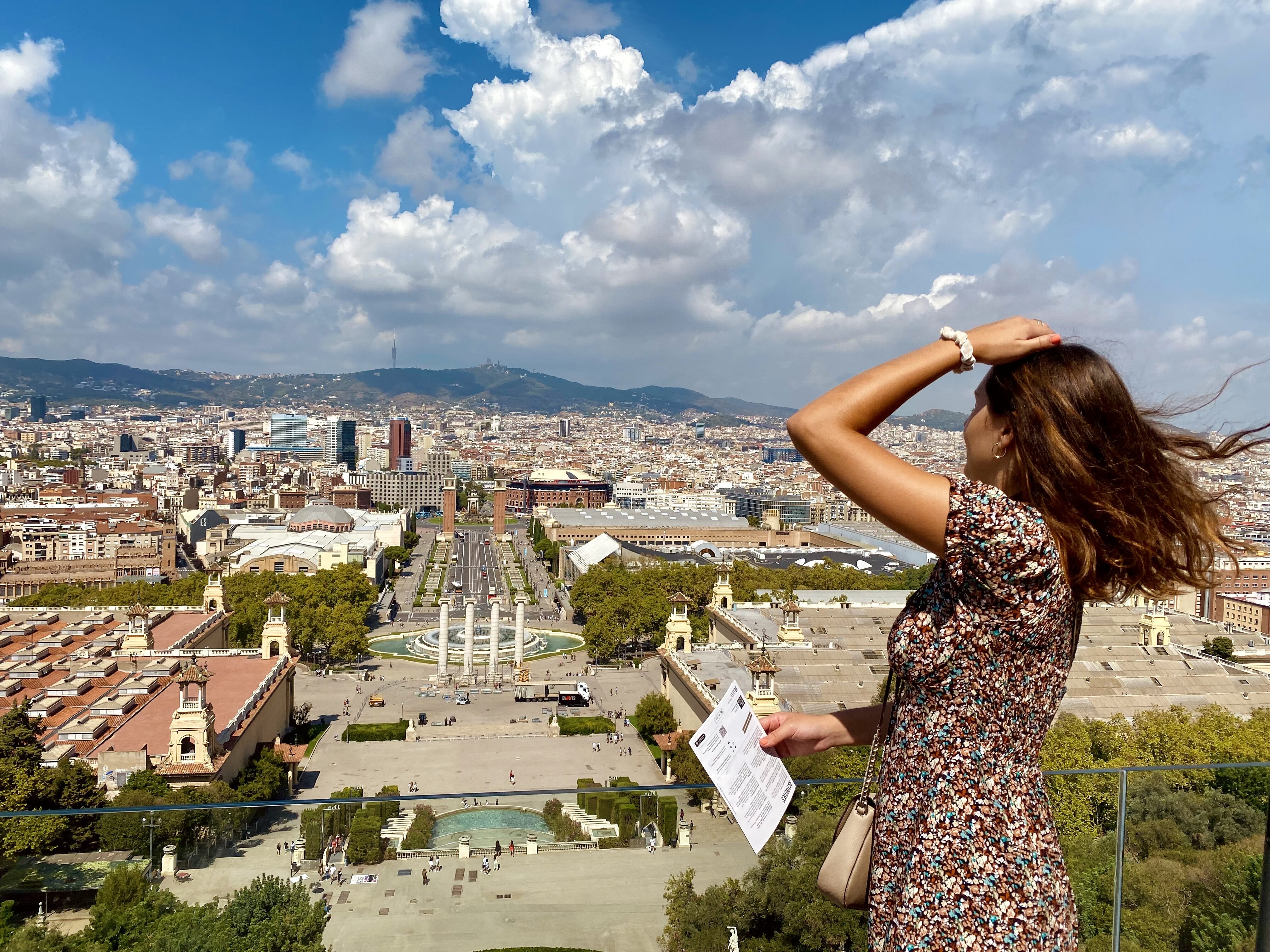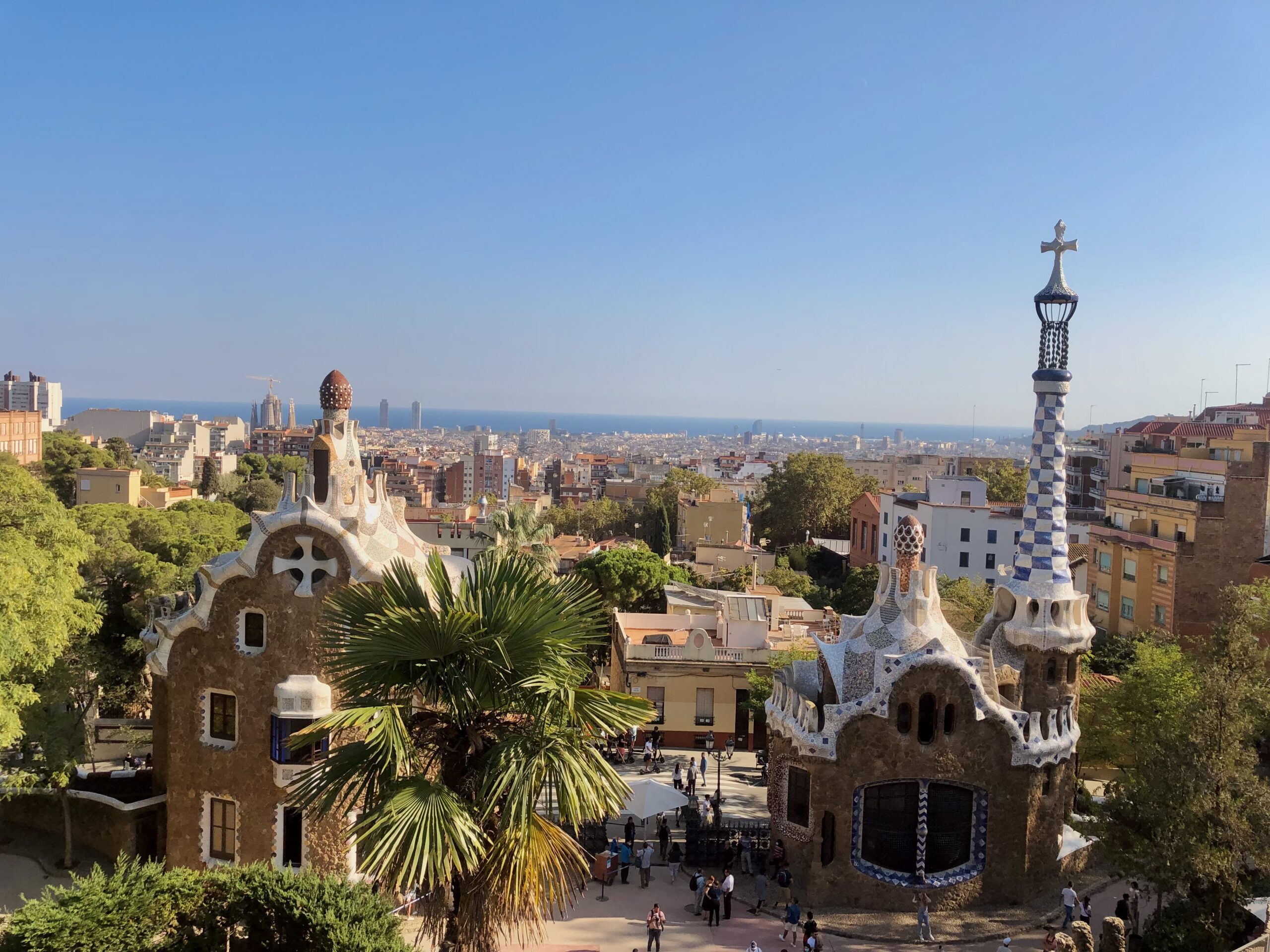
What They Don’t Tell You About Moving Abroad
It's the best thing ever and it's easy to romanticize it, but there's a whole other side you don't see about what it's like to move abroad.
Imagine moving abroad to a small beach side town on the Mediterranean coast, eating the freshest food, having the best pastas and pastries, exploring places that make you feel like you're in a postcard, and sipping all the wine and drinks you can imagine for a great price while lounging by the water. The fashion, the people, the sights, the lifestyle. We've seen the tik toks and reels of "it's called il dolce far niente" followed by a montage of the chill lifestyle of Italy and "the sweetness of doing nothing." I mean how can you not romanticize that kind of life?
Many of us romanticize about what it's like to move to and live in Europe, "the European dream" if you will. Rather than the 'American Dream' of hustling and rising to success – though each of us has a different definition of success. In Europe, success seems to be living a healthy work-life balance whereas in America it seems to be living a 'live to work' lifestyle where work and wealth are prioritized no matter what you might be sacrificing (like mental health).
With that in mind, it makes sense why it's so easy to romanticize a life abroad, especially as a form of escapism. It was always a dream of mine to move to Europe, so of course I romanticized it, and I finally realized it by studying abroad in Barcelona and moving there after graduating.
I'm not saying you shouldn't romanticize moving abroad, it's fun and you should dream it all because it's one of the best things you can do! But it's important to keep in mind that there's also a whole other side to moving abroad that is often left out (more about what to consider when moving abroad in a later post). There are struggles and challenges you face when you move abroad that can really test you and push you to your limits mentally and emotionally. There will be days where you feel very isolated, others where you just want to give up and go back to the comforts of home that you're used to.
The initial period is the hardest, but you honestly get settled sooner than you realize, and you'll see how much you have grown in that time. So while you're romanticizing a life in Europe (like I did), here are some of the biggest things they don't tell you about moving abroad.



It can be tiring and lonely
I think this is one of the biggest things that people don't realize about moving abroad. It's true you meet so many people and make new connections, but it can be really hard at first when you don't know anyone and it can sometimes take a lot of your energy to put yourself out there (especially for an introvert like myself). You have to learn to do many things on your own, usually in a different language surrounded by unusual customs, and become more independent than you've ever been. And it's great because it's the best way to grow as a person and you end up doing things you never thought you were capable of. Though of course, that takes time.
It's always the initial phase where you feel the most lonely. It's lonely because you miss your family and friends. It's lonely when you don't have a support system in place yet or have many people to turn to for help. At least not anyone who's in the same place or time zone as you – shoutout to my California friends for learning the time difference and helping me as best they can! That's when you have to start going out and meeting people, which can be hard when you're still not fully settled. And for shy people like myself, it can be intimidating to put yourself out there, more so when you're in a different environment that you're not used to yet.
However, once you start making those connections, you'll find many other expats and people who can show you how to be a local, and you'll slowly build a strong support system. These are the connections that will help you learn and make you feel like you're part of a community. Although the city isn't the same without them now, it was my study abroad crew that really helped make Barcelona feel like home for me. All the connections I have made from the start of my study abroad until now have made moving abroad one of the best experiences ever, it just takes take getting over the initial loneliness and tiredness!
I mean, there's a lot of work that goes into moving countries, it's tough even when you're just moving houses in the same city! I don't think people realize the tiredness that comes when you move abroad. You really have to prepare for exhaustion that's not just from the jet lag – unpacking, getting your affairs in order (legal affairs particularly), learning the local language and traditions, trying not to get lost when running errands, and of course the effort in branching out to meet cool new people. Again, the initial phase will always be the hardest and most tiring and lonely, but it's all part of the process of moving abroad!



Missing your family and friends
Now this is the most difficult challenge of them all because it's something that constantly sticks with you. It's always hard when you're moving away from the people you love and care about, especially when it's a choice you made because you know it's for the best. It can be complicated being away from family and friends, wishing you could be near them but also knowing that going back home will prevent you from pursuing your goals and dreams. It's all quite bittersweet really.
This is a challenge you'll always be facing when you move abroad because you'll start to question your decision and ask yourself, "Was this the right move? Did I choose the right country to move to? Should I have waited more before moving? Will I be happy here? Can I see a future for myself here?" You really start to go down a rabbit hole, but I always end up telling myself that this was the right move because it's something I've always wanted and I know everything worked out the way it was supposed to.
I feel like in my case, missing my family and friends wasn't as hard just because I've grown up with them being abroad and I'm used to not seeing them for months or years at a time. Since my family was spread throughout California, Peru and Ireland, anywhere I went, I was always going to be a 10 hour flight away from my family and friends. If I went to Peru to see my family there, I'd still be away from those in Ireland and California. In other words, any time I went somewhere to visit family and friends, I'd had to leave other family and friends behind.
Of course I'm very thankful that I do have people abroad because it's given me the opportunity to explore more of the world and develop my multicultural experiences. I also knew I'd always see everyone again and that the goodbyes were only temporary. It's just hard sometimes to not have all the people you love and care about close to you in one place at any given time.
And when I think about it, practically all my friendships are long-distance friendships. Every single one of them, from Irvine to Paris to Ballyvaughan to Sitges and everywhere in between. When I'm saying goodbye to my friends, I never know when I'll see them again or how much we'll change in that time. It's really beautiful, in a way, to see how friendships can remain despite the time and distance.
Even though it's been over a year since I made the move to Europe, and I'm used to being away from family and friends, it's still a bit of a challenge that will always stay with me. It's weird not spending time with people you used to see everyday, but that's a normal feeling when moving abroad. I take comfort in the fact that I know I will see everyone again at some point. And the best thing about having family and friends in other places is that it gives you more excuses to travel!



Finding that "home" feel
This challenge ties back to feeling lonely and missing the comforts of home. I think "home" is such a hard thing to define, particularly for someone like me who considers many places as home, so finding that feeling can be complicated. A lot of it has to do with the place you're in and your family and friends. But it's the little things that contribute to that "home" feel too, though you don't really realize it until you move away.
It's knowing the local grocer or bus driver, going to your favorite restaurant where the staff already knows your order, or walking past a neighbor you've known your whole life. It's in those moments of simple interactions or running errands that you realize that you're not home. Moving abroad gives you the opportunity to start fresh and experience new things, but it's the little details that form part of finding that "home" feel.
I recognize people around Sitges now, and I start to feel more like a local and develop that 'home' feel. Though you're always in this weird limbo where you're not a tourist but you're also not a local even though this is now your home. Being an expat is a really strange feeling because you're always in this 'in-between' place.
This kind of ties into my conflicting cultural identity when I'm abroad. People ask me where I'm from and I always hesitate. I'm definitely not from Spain, but I live here now so it'll become a part of my identity. It's weird because I'm not a tourist, but I also feel like I haven't been here long enough or feel like I'm really part of the community here to say that I'm a local because I'm not. I'm an expat, but I feel like a lot of people get confused with that or don't really understand. They think I'm here short-term, but I'm here for the long run, to start my life here.
How long does it take to be able to say you're home? Will I always be stuck in this 'in-between' place as an expat? Will others accept me as a local if I've been here long enough? How do I 'prove' and feel like I'm at home and more of a local? How can you call a place home if you don't even feel like a local? There's so many different layers to finding a place that feels like home, it's really a complicated journey.
Read more about my conflicting cultural identity on my first blog post
Some say that it's the people you're with that makes a place feel like home, and I definitely think that's true, but it's not just the people you're with. It also has to do with the lifestyle, environment and overall 'vibe' of a place that draws you in and makes you feel like this is exactly where you are meant to be. "Home is where the heart is." And in my case, my heart is in Barcelona. Partly because of my study abroad crew and the friends I've made, but also because I fell in love with everything this city has to offer me – the chill lifestyle, the sights, the diversity of people and cultures, the balance between city, beach and mountains.
No place has captivated me the way Barcelona has! And even with my crew gone, it still feels like home for me. Home really is wherever your heart is, and my heart will always be in many different places – California, Ireland, Peru, and now Barcelona. And I'll continue to find that feeling of home through all the little details and experiences.
Culture shocks
Whether you're moving abroad or even just visiting new places, culture shocks are always a challenge! They can also make for the best stories. You'll see so many new, interesting things and and learn a lot about how other cultures work. You'll probably end up embarrassing yourself at some point and maybe unintentionally offend someone, but you live and you learn! We all make mistakes and mess up from time to time, it's all part of a learning process. I've definitely had my fair share of embarrassing experiences moving abroad, and I've learned that some culture shocks are harder to get accustomed to than others.
One of the biggest shocks that I experienced (luckily not an embarrassing one) was everything being closed on Sundays. I knew most places in Spain were closed for a few hours during the day and fully closed on Sundays, but I didn't realize that it applied to pharmacies too! Unfortunately for me, one Sunday at the start of my study abroad program, I found myself needing some paracetamol because I had just run out. I was in so much pain, but I knew there was a pharmacy right around the corner from my place.
I eventually got myself out of bed and walked over there, only to find that it was closed. I check on my phone and found that all the other pharmacies near me were closed too. I didn't realize they would be places that would close on Sundays because what if there was a prescription medication you really needed but you couldn't get it just because it was Sunday?
So I had to just crawl back in bed and wait out the pain. I later found out that there are some pharmacies that stay open on Sundays (thankfully, in case of any emergencies) but they were 20 minutes away from my place at the time. Even if I had known about them that day, I probably wouldn't have been able to head over. After that experience, I learned to always make sure I have enough medications, groceries, etc. before Sunday and any holidays!
That was another thing too. I never really knew when the Spanish holidays were, and I feel like there's so many, it's hard to keep up! Sometimes I wouldn't even know until I saw that everything was randomly closed. Other times, when there was no holidays, I'd go to a place during their supposed open hours, and it would say they're open on Google and their website, but when I got there they would be closed. I feel like regardless if there's a holiday or not, the hours and times of places here are unreliable, especially compared to America where there are so many places that will always open no matter what, and even some that are open 24/7 (thank you Jack-in-the-Box). It's just one of the many varying degrees of culture shocks you might experience when you move abroad!
Legal processes & bureaucracy
Now this is the biggest thing that slips people's minds when they're thinking about following that 'European dream'. There are so many documents and legal stuff that need to be taken care of when you're moving countries. And there are some countries in particular (Spain, Ireland) that can have very slow and unnecessarily complicated processes that will most definitely get on your nerves – don’t even get me started on the Spanish empadronamiento!
I feel like you always end up in the most confusing situations when you try to get residency and deal with bureaucracy abroad. For example, I way trying to get my NIE during my study abroad and I ended up getting stuck on one of the final steps of the process. Basically, I had to pay 12 euros at the bank in order to get a NIE, but in order to make the payment, I needed a NIE because they didn't accept passport numbers for making payments. So I couldn't get a NIE without paying, but I couldn't pay without a NIE. It was so stressful and infuriating, and it made absolutely no sense! It was similar to when I tried to get my PPS number in Ireland for the first time a few years ago when I needed proof of employment to get the PSSN, but in order to get a job in the first place, I needed a PSSN. Make it make sense people!
Dealing with all this legal stuff of moving abroad is often at the back of people's minds, but it's something you really have to make sure you prepare for, and, more importantly, that you do it all correctly. It's best if you look into it way ahead of time so you know what you're signing up for and that you bring all the right documents over.
It can be difficult when you don't have anyone to help you at the beginning, because going through these legal processes can be really difficult and stressful. Luckily there's many agencies that can help you get your paperwork and legal affairs in order (at a cost of course), but it's nice to have a friend or two who have gone through all this so they can help you go through it and give you recommendations.

Final Thoughts
Overall, moving abroad can be lonely and tiring, you'll miss your family and friends, it'll take time to find that 'home' feel, you'll face many culture shocks, and you'll deal with bureaucracy abroad will definitely test you. It's all a big learning process where you fall down a few times and have some missteps here and there. But you get up and you keep going.
Moving abroad is one of the best things you can do because you learn so much, not just about other cultures and the world in general, but you also learn so much about yourself. You do things you never realized you could do, you realize your potential, you learn and you grow. That's why it's important to keep in mind this whole other side to moving abroad that they don't tell you about because it better prepares you for the challenges ahead and the growth you will go through.
I don't have any regrets about the decisions I have made to leave California and move to Spain, though I will always be thinking of what could have been. Imagining a different outcome and timeline, but then coming to the conclusion that I would have eventually found my way to Europe and that everything happened the way it was supposed to.
When you really, truly dream it and want it, like I did, you won't have any regrets of having made the move, regardless of the struggles and challenges. It's all part of life anyways.
Thanks for reading this far!
Love, Lany.



3 Comments
Rowanne Fernandez
This was such a lovely read!! I moved abroad (but with my whole family) and even I could relate. The paperwork and unpacking and packing, and the adjusting to such a new environment can be so exhausting. But in the end, it’s all worth it bc you gain such cool experiences and learn so much about the world and yourself and you grow more than ever could if you stayed where u were ❤️
lanytravels
Thank you so much! I really appreciate it!!
Julia
Omg you are such a good writer! You make me want to move abroad 🙂